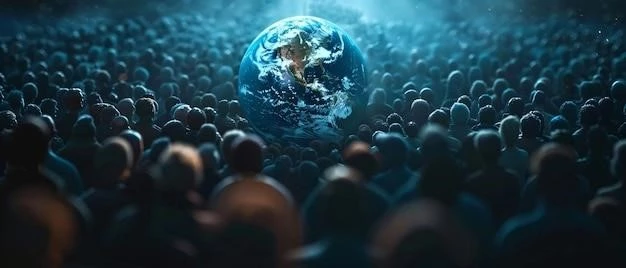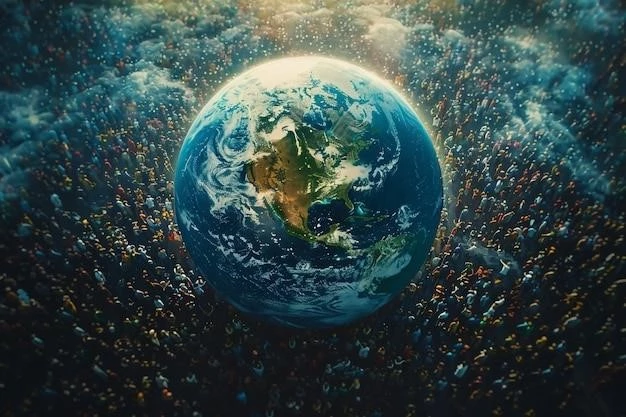The year is 2024. The world feels more fractured than ever. Headlines scream about political polarization, the rise of nationalism, and the erosion of trust in democratic institutions. As someone who has always believed in the power of dialogue and the promise of a more just and equitable world, I can’t help but feel a sense of unease. I’ve spent the last few years traveling, engaging in conversations with people from all walks of life, and trying to understand the root causes of this global disunity. What I’ve found is both disheartening and hopeful.
The Challenges We Face
Let’s be frank, the challenges to democracy are significant and multi-faceted:
- Economic Inequality and Globalization: I’ve witnessed firsthand the anger and resentment simmering in communities ravaged by economic globalization. Factories stand silent, jobs have been outsourced, and people feel left behind by the relentless march of progress. This economic anxiety fuels populism and breeds distrust in traditional political systems.
- The Rise of Nationalism and Identity Politics: Across the globe, there’s a palpable sense of retrenchment. People are retreating into their own tribes, clinging to national identities, and viewing the “other” with suspicion. This resurgence of nationalism undermines global cooperation and makes finding common ground feel impossible.
- The Erosion of Trust: From fake news to political scandals, it seems like every day brings a new reason to distrust those in power. I’ve spoken to countless individuals who feel disillusioned and cynical about the political process. This lack of trust is corrosive, eating away at the very fabric of democracy.
- The Digital Divide and the Weaponization of Information: The internet, once hailed as a democratizing force, has become a breeding ground for misinformation, hate speech, and political polarization. I’ve seen how algorithms trap people in echo chambers, reinforcing their existing biases and making meaningful dialogue nearly impossible.

Reasons for Hope
The picture may seem bleak, but I refuse to give in to despair. Throughout my travels, I’ve also encountered a spirit of resilience and a yearning for change that gives me hope:
- A Global Movement for Social Justice: From the streets of Hong Kong to the public squares of Europe and the Americas, people are rising up to demand a fairer, more just world. I’ve marched alongside climate activists, joined protests against racial injustice, and witnessed the power of collective action. This global movement for social justice gives me hope that we can build a better future together.
- The Power of Technology for Good: While technology has undoubtedly contributed to many of the problems we face, it also holds the key to solutions. I’ve seen how online platforms can connect people across borders, amplify marginalized voices, and facilitate citizen engagement. We must harness the power of technology to rebuild trust, promote transparency, and foster constructive dialogue.
- The Resilience of Democratic Institutions: Despite facing unprecedented challenges, democratic institutions are proving to be more resilient than many predicted. I’ve witnessed firsthand the dedication of journalists, activists, and everyday citizens who are working tirelessly to hold those in power accountable and defend democratic values. Their efforts give me hope that democracy, while bruised and battered, is far from broken.

What We Can Do
The future of democracy is not preordained. It depends on the choices we make today. Here are some steps I believe we can take to strengthen democracy in a divided world:
- Embrace Dialogue and Understanding: We must resist the temptation to retreat into our own echo chambers. It’s time to listen to those with whom we disagree, to seek common ground, and to build bridges of understanding across political and cultural divides. I believe that open, honest dialogue is the foundation upon which we can rebuild trust and find common purpose.
- Demand Accountability and Transparency: We must hold our leaders, institutions, and ourselves to a higher standard. I believe that demanding transparency, fighting corruption, and promoting ethical leadership are essential for restoring faith in democracy.
- Strengthen Civic Education and Media Literacy: We must equip future generations with the critical thinking skills necessary to navigate our complex world. I believe that investing in civic education, promoting media literacy, and teaching young people how to engage in respectful dialogue are crucial steps in combating misinformation and polarization.
- Address Economic Inequality: We must create a more just and equitable economic system that works for everyone, not just the privileged few. I believe that addressing income inequality, expanding access to education and healthcare, and creating opportunities for all are essential for building a more inclusive and prosperous future.
A Call to Action
The challenges we face are daunting, but I remain cautiously optimistic. The future of democracy is not a spectator sport. It requires each and every one of us to be active, engaged citizens. It’s time to bridge the divides, heal the wounds, and work together to create a world where every voice is heard, and every individual has the opportunity to thrive. I truly believe that a better future is possible, but we must fight for it, together.










